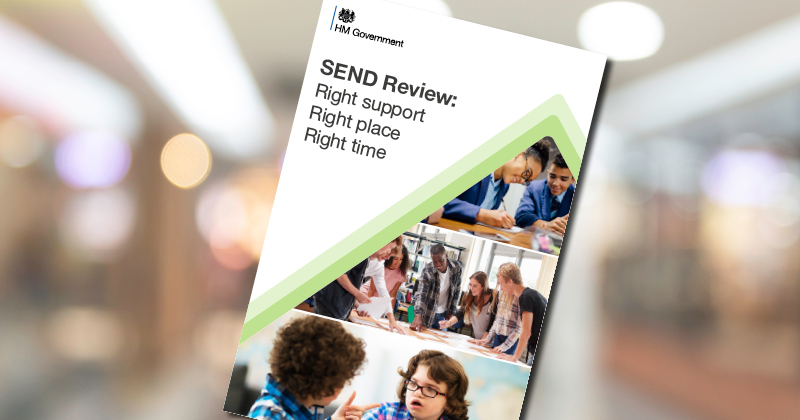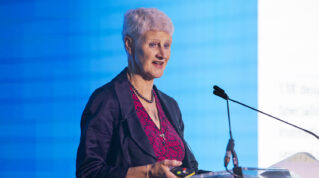Around 17 per cent of pupils are now identified as having a special educational need (SEND), and this figure is only rising.
Across the country families, teachers and special needs staff have been working tirelessly to meet this area of need and ensure every child gets the opportunity of a great education.
Often though, this job has been too hard.
I have travelled the country from Ipswich to Bolsover learning about teachers’ and parents’ experiences.
Parents often recount to me the moment after diagnosis when they feel alone, concerned about the battle ahead and worry about what this means for their child’s life prospects.
Too often families tell me that despite their best efforts, they struggle to get the educational assessments and services their child needs.
Support is often fragmented, and families face a postcode lottery in whether they will get good quality support for their children.
‘Early identification at the heart of our plans’
In March we laid the foundation for transformational change, by publishing our SEND and alternative provision improvement plan to improve services for families across the country.
At the heart of these plans is early identification and ensuring children’s needs are met as early as possible so that they don’t escalate.
We began to prime the system to deliver these transformed outcomes by making sure the right resources were in place – almost doubling the pipeline of new special free schools alongside £2.6 billion capital funding, and injecting significant investment into the high needs budget.
From the time that the prime minister was chancellor until now, high needs funding has increased to record levels. (Editor’s note: pupil numbers are also at record levels).
And there will be a further increase of £440 million in 24-25 to bring total funding to £10.5 billion – an increase of over 60 per cent since 2019-20.
Today we’re announcing new partnerships with local authorities across the country to test and refine the reforms we set out in the Improvement Plan.
The change programme, backed by £70 million, will find the best ways to improve SEND and AP provision, and how to make support consistent across schools and specialist services.
‘Finding the right school can be daunting’
It will also look at a range of issues within the system that need reforming, from creating a standardised format for education, health and care (EHC) plans, improving the application and assessment processes in place to diagnose children, to creating stronger partnerships between health, schools and family services to create more seamless EHCP processes.
This work is vital to producing the successful, sustainable reforms that will carry generations to come.
Parents tell me that searching for the right school for their child with SEND can be daunting, as many are oversubscribed.
To respond to this demand, today we are building on the 33 new schools we announced earlier this year, and announcing a further seven new free schools for children with special educational needs. This is a welcome boost to SEND provision where it’s most needed, as the schools chosen specifically meet the needs and shortfalls of their local areas.
I’m particularly proud to announce two of these schools will be built in Kent, where more and better provision is so clearly needed.
‘Supported internships are a brilliant next step’
When the time comes to move on from school, I want young people with SEND to be ambitious about their futures.
Work builds young people’s confidence, self-esteem and social life – all things that parents want for their children in adulthood.
Supported internships provide a brilliant next step for young people with SEND, offering a way into work. They are work-based study programmes for 16 to 24-year-olds with an EHC Plan.
I’m really pleased that we’re rolling out a pilot from autumn to test supported internships with young people with SEND who do not have EHC plans, so even more can benefit from this opportunity.
This builds on our £18 million investment to double the number of supported internships from around 2,500 to 5,000 by 2025.
When I meet the families of young people with SEND, I am always amazed by their love for their children, shown in their efforts to get them what they need to succeed in life.
I want government to match that love with an equal dedication to getting things right, first time, for every child.
Today’s updates will help develop these reforms, so we can bring about the changes that families urgently need.
















“I’m really pleased that we’re rolling out a pilot from autumn to test supported internships with young people with SEND who do not have EHC plans, so even more can benefit from this opportunity.”
What does this word salad even mean? SIs are funded like any other Study Prog *except* the LA agrees, via the EHCP, to fund the additional costs of the learner being in a workplace. A non-high needs learner on an SI would just be on an I… There’s no mechanism to cover those extra costs outside of high needs funding.